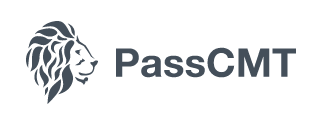Some competitors claim that practicing visualization techniques and using memory tricks allows them to memorize large chunks of information. In addition to visual and spatial memory techniques there are many other tricks you can use to help your brain remember information faster. Watch this video from the Learning Center to quickly explain many of these tricks.
Besides memory tricks, one of the most comprehensive strategies to help you remember what you encounter is everyday techniques that work no matter what you try to memorize. A healthy lifestyle has special memory techniques that can help you remember the details of what you have learned. Instead of studying to develop your own mnemonic devices, use these common ones to memorize complex information quickly.
Break up your curriculum into blocks and use mnemones to memorize tricky concepts quickly and easily. Break up your curriculum into “chunks” and use these mnemonies to memorize tricky concepts.
Test yourself to remember the information you are trying to study. It is often more effective to study several subjects in one day in order to remain focused compared to studying one or two subjects at the same time (Rohrer, D. ) – For example, if you prepare for an exam in mathematics, history, physics or chemistry, it is better to study a bit of each subject each day. If you learn a lot about the same subject in one day, you are likely to confuse similar information.
This study will help you focus on math Monday, history Tuesday, physics Wednesday and chemistry Thursday. The more time and effort you spend concentrating on new information that is not already embedded in your memory, the less time you will have to rely on knowledge at the root of your mind. Now that you know how the brain works, take the methods suggested above and make the study of time more fruitful.
Before we go into what you should do to remember, let’s use the 3-R test to find other memory tips that don’t cut it. If you want to remind yourself in a more realistic way of the importance of books and posts you encounter on this planet, here are 7 powerful tips to help you improve your memory while studying. Try these tested techniques to improve memory: improving memory improves memory and increases the storage of information.
Science has proven that there are six ways to learn faster and stay better. Teaching by pretending to do what you think you’re doing: Teaching material or tasks you’re trying to grasp can speed up learning and memorize more, according to a study by Washington University in St. Louis. Studies have shown that teaching information is a safe way to remember it better, even if you have to retrieve it from your own memory.
Information your brain acquires while studying for a major exam, such as the names of people you are introduced to in a meeting, is stored and retrieved in long-term memory, so memorizing is the quickest way to figure out what you need to do next. But if you learn how to “memorize” information, you can move through the pack without having to memorize or retrieve the necessary information. To learn this, you have to find a technique that helps the brain to transmit information faster.
It may seem counterintuitive to remember something that has helped you learn, but you will be amazed at how powerful a memorization technique can be when it comes to remembering what you have learned, remembering information and being ready when you need it. When psychologists talk about retrieving memories, they mean remembering rather than remembering. Memory is a mystery to us all, but studies show that there are techniques that can help you retain more of what you have learned.
According to the Loma Linda University School of Medicine’s School of Medicine, some of the greatest brain-based memory storage techniques are related to new information you already know. Memorization techniques for exams and tests, and others for solving age-old questions and remembering what one has learned, are called recall practices, and they are based on the attempt to extract information from memory. On-demand practice means remembering information that you have read, heard or seen.
Retyping notes is an effective learning method that helps you memorize key information by reintroducing it back into your brain. Studies have shown that people retain more information when they write things down. Retrieving information helps to strengthen the nerve pathways that create memories and shape your memories, and techniques such as checking your notes or using flashcards can help you retain information.
There are several steps to the memory palace technique, and that includes selecting a place that you know well, identifying its characteristics and using these characteristics to store the information you want to remember. By linking different information or stories in familiar places, you can organize and keep what you need to memorize quickly. For example, if you are working on memorizing a line, you might find a place for this line of text in your memory palace and you can recite it over and over again until the time comes when you can walk through the room and select the lines in the right order.
It is similar to the memory palace technique but instead of anchoring new visual information in one place, one anchors it to a physical feature one tries to remember. This creates a visual memory that the mind can remember during an exam.
Studies have shown that students who tackle their most difficult issues at bedtime have better memory, memory and understanding than those who do not. Studying before bed helps you retain information because your brain stores new memories and transports them to long-term memories during sleep.
